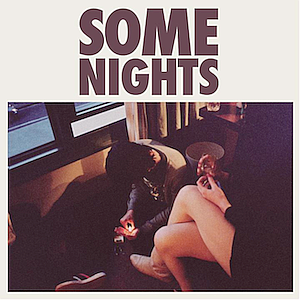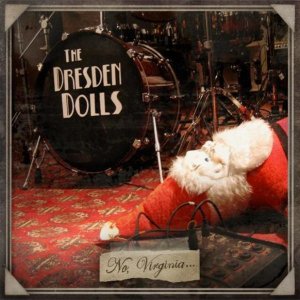Compilation albums usually signify a few things.
Most often, record labels decide to squeeze out a few dollars from a band that’s not producing a steady enough income. Or, they are honest to goodness efforts by the artist to give their fans songs that are very near and dear to them. This unfortunately, will ultimately make the collection feel eclectic due to the fact that the material wasn’t recorded all at one time.
It’s a delicate situation with huge implications.
But the one band that has decided to pull it off to near perfection is The Dresden Dolls. For after their extensive touring behind 2006’s Yes,
The first thing that’s evident about No,
The collection’s real gem is the darkly tinged “Lonesome Organist Rapes Page Turner,” where the band’s grim cabaret aesthetic blends seamlessly with punk ferocity. Here, Palmer’s piano chords are fluttering and frantic, providing the back bone for a lurid tale about seduction and power. Of all the female vocalists in contemporary music, Palmer is the most unique offering up grating yelps one moment, to sugary croons the next.
It’s pure camp and Palmer pulls it off flawlessly, painting herself as a victim of circumstance and naivety with lines such as, “So on the bench I watched his left hand crossing/While doubling entendres with the voicings/He said ‘Oh darling, you're charming/Please don't find it alarming…’” Set against’ Viglione’s manic cymbal work and ferocious rolls, the 3 minute and 42 second tale dips and dives from hilarious to horrifying like only The Dresden Dolls know how.
Much like their two proper studio albums, No,
Yet for as far as their exuberant cabaret infused image gets them, some of the most compelling songs on No, Virginia… are when Palmer and Viglione build delicate and intricate arrangements that build from soft piano tinkerings to overwhelming walls of sound. “The Mouse & The Model” starts off subdued as Palmer’s piano seems to climb and climb along the military-like drum pattern that underscores the track. Palmer’s ivory work is all as once cascading and huge, tender but forceful. Juggling such a variety of sounds usually makes for a disaster, but Palmer executes it with such deft control over her instrument that it’s quite a feat to behold.
The band also excels when they focus on small and intimate sounds as well. The sexually charged “The Gardener” plods along at a sinister pace. It pulls listeners in with its hypnotic bass and haunting piano, but its charm lies in Palmer’s ability to tap into something primal. With lyrics such as, “Don’t rest my little flower/You're getting put to use/You've always been a failure/But now you're bearing strange new fruit…” she evokes lingering images in half-whispered tension. When the track finally crescendos in a flurry of melodic dissonance, it serves as an unsettling but much needed catharsis to Palmer’s foreboding tale.
There is no shortage of quality songs on No, Virginia… but there are a few that feel out of place or at least underdeveloped. “The Kill” is a leftover b-side from Yes,
But No,
And ultimately, it’s difficult to believe this hodgepodge set of songs isn’t a proper studio album.
Sounds Like: Yes,
















